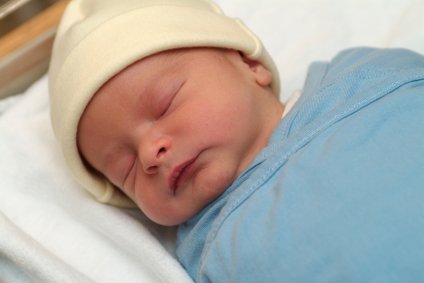
Choice, privacy, reproductive freedom. Bodily autonomy. Rape, incest. Teen pregnancy, economic hardship. Back-alley abortions. Overpopulation. Crime and child abuse.
These are some of the things people talk about when they discuss the ethics of abortion. But none of them is relevant to deciding whether abortion is morally right or wrong. Author and speaker Greg Koukl uses a helpful illustration.
"Imagine that your child walks up when your back is turned and asks, 'Daddy [or Mommy], can I kill this?' What is the first thing you must find out before you can answer him? You can never answer the question 'Can I kill this?' unless you've answered a prior question: What is it? [A cockroach? Sure. His baby sister? Hold on a minute!] This is the key question.
"Abortion involves killing and discarding something that's alive," Koukl continues. "Whether it's right or not to take the life of any living thing depends entirely upon what it is."
…The real issue is the moral status of the unborn entity who is killed by abortion. Is the unborn a human being (a scientific question)? If so, how should we treat him or her (a moral question)?
The pro-life argument, in brief, runs as follows. From conception the unborn is a distinct, living and whole (though immature) human organism--a member of the species Homo sapiens at a very early stage of his or her development. We know this from the science of embryology.
Morally, no relevant difference exists between human beings before and after birth. Unborn humans differ from older humans (like newborns) in size, level of development, location and degree of dependency, but none of those differences are significant in a way that would justify killing the former.
Rather, human beings have moral value and a right to life by virtue of the kind of thing they are, not because of acquired characteristics or abilities that some human beings have and others do not, and which we may gain or lose throughout our lifetimes.
It follows that all human beings, including the unborn, are equal in having basic dignity and a right not to be unjustly killed. So elective abortion is wrong.
How do pro-choice advocates respond? Usually with the kind of question-begging rhetoric discussed above. Always clarify the issue--the moral status of the unborn--and use science and simple moral reasoning (above) to point them to the truth: Abortion unjustly takes the lives of innocent human beings, and it should not be permitted.
Editor's note. The previous are excerpts from an article that appeared in the December 2010 issue of Minnesota Citizens Concerned for Life News.
Source: National Right to Life
Publish Date: December 21, 2010
